Publications
Articles, publications, books, tools and multimedia features from the U.S. Institute of Peace provide the latest news, analysis, research findings, practitioner guides and reports, all related to the conflict zones and issues that are at the center of the Institute’s work to prevent and reduce violent conflict.

In Tunisia, Democratic Elections Were Easy—Now Comes the Hard Part
After two rounds of presidential elections which sandwiched parliamentary elections, Tunisia has accomplished something that has eluded every other country in the Middle East and North Africa: repeated free and fair democratic elections. And while that milestone may renew the faith of many in the trajectory of Tunisia’s democratic transition, the outcome of these elections is a harbinger of more difficult times.
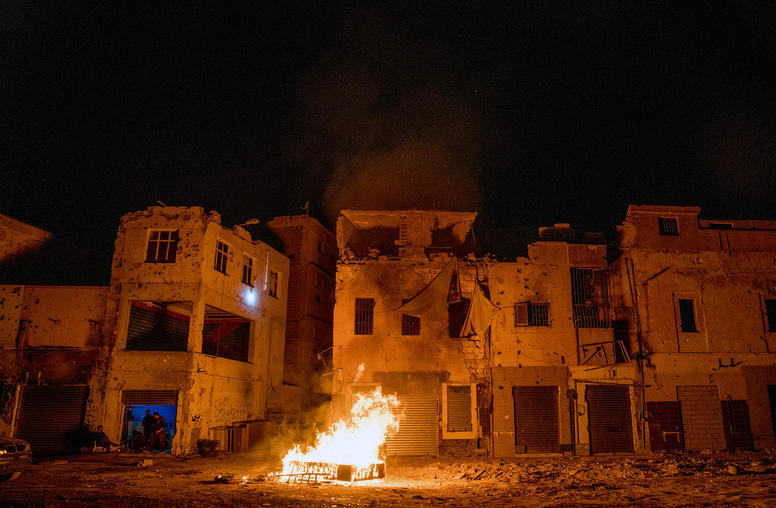
Factional Conflict Leaves Libya Deadlocked
In April 2019, Field Marshal Khalifa Haftar and his self-styled Libyan National Army launched an offensive to capture Tripoli from the U.N.-backed Government of National Accord seated there. Four months later, the result has been a virtual stalemate that has claimed over 1,000 lives. And while fighting on the ground is at a standstill, multiple regional actors continue providing air support and direct aid to either side. USIP’s Thomas Hill breaks down the current situation in Libya and the possibility for peace amid this deadly standoff.

Thomas Hill on Libya and Tunisia in Transition
The death of President Essebsi was a major loss for Tunisia, but the U.S. remains deeply invested in advancing democracy in the country. Alternatively, looking to the instability in Libya, Hill says, “The U.S. is not involved at all, [even though some] Libyans are pressing for the U.S. to do more … The most productive way the U.S. can be involved is not militarily or financially, but rather diplomatically.”
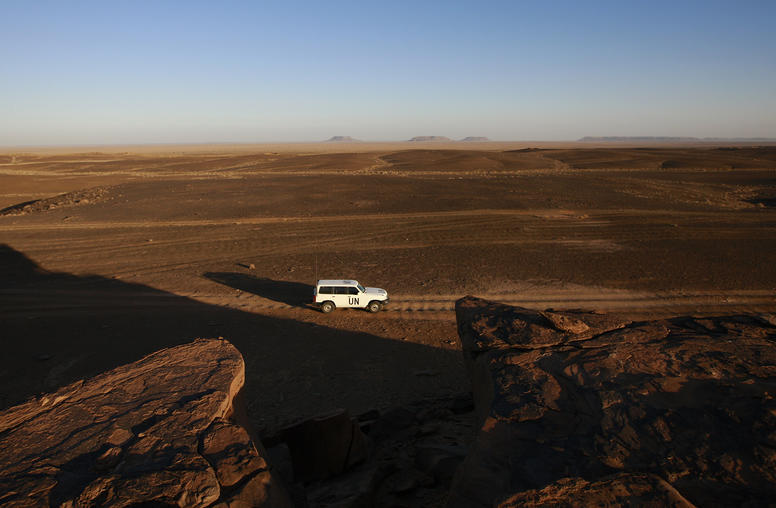
Western Sahara: Problems in the U.S. Push for Peace?
U.N. ceasefire monitors patrol the Smara region of the Western Sahara. U.S. pressure for negotiations aims to end the four-decade conflict, including the costs of U.N. involvement. (U.N. photo/Martine Perret)
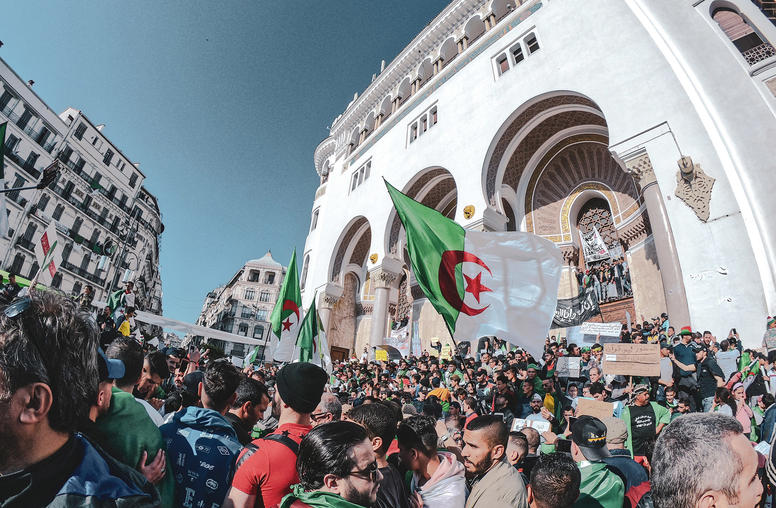
Why Algeria’s Protests Continue After Bouteflika’s Ouster
It’s been two months since longtime Algerian dictator Abdelaziz Bouteflika resigned following weeks of mass protests. But, Algeria’s protest movement has continued to maintain pressure on the army, which is overseeing a 90-day transitional period. Protesters have even recently called for the resignations of interim president Abdelkader Bensalah and Prime Minister Noureddine Bedoui, who were appointed by Bouteflika days before his resignations. With elections scheduled for July 4, what’s next for Algeria? USIP’s Thomas Hill looks at what the protesters want, if an election can satisfy their demands, and the regional implications of Algeria’s continued unrest.
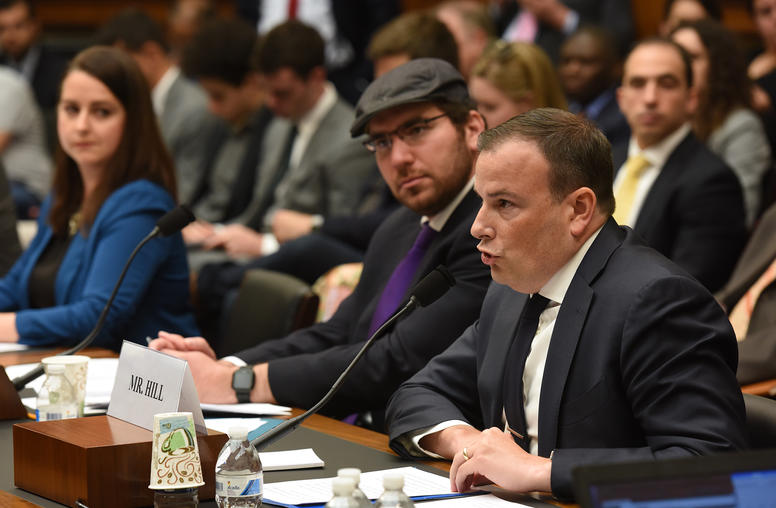
The Conflict in Libya
Thomas Hill, senior program officer for North Africa, testified on May 15 at the House Foreign Affairs Subcommittee on Middle East, North Africa, and International Terrorism hearing on “The Conflict in Libya.”

Thomas Hill on the Upheaval in North Africa
From Algeria to Libya and beyond, North Africa has been roiled by unrest in recent months. USIP’s Thomas Hill says at its core this turmoil is the result of “governments having not performed to the degree that they [the people] want or need them to” and discusses how it impacts U.S. interests.
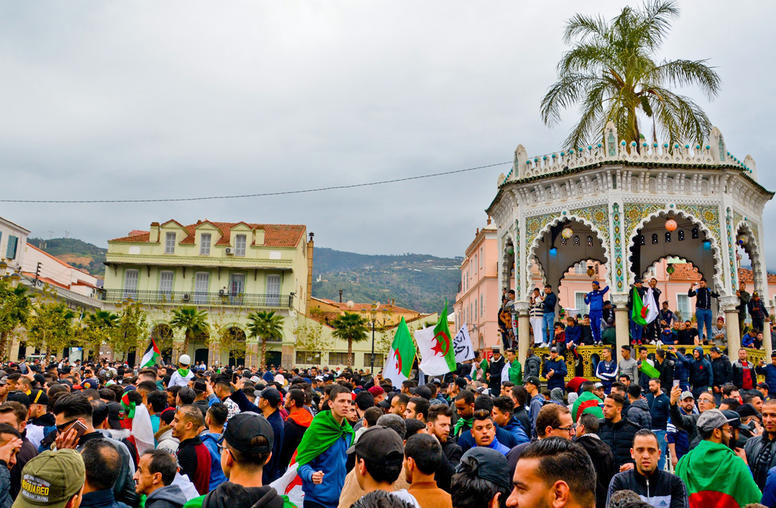
Will Algeria’s Protests Lead to Change and a Second Arab Spring?
In response to nationwide protests, Algerian President Abdelaziz Bouteflika announced he would not seek a fifth term to extend his 20-year rule. Bouteflika’s decision was greeted with celebration by the protesters, who saw it as the first victory in a potential democratic revolution. However, the upcoming presidential elections have been delayed, effectively allowing Bouteflika and a small group of ruling elites to govern indefinitely. What follows for Algeria is an uncertain period, one that echoes the “Arab Spring” that swept through the region in 2011. USIP’s Thomas Hill discusses Algeria’s future and the possibility of a second “Arab Spring” on the horizon.

Thomas Hill on Libya
Since the fall of Muammar Qaddafi in 2011, successive U.S. administrations have watched Libya’s continuing collapse, mistakenly believing that the country’s unraveling threatens only Europe, says Thomas Hill. Ahead of the Palermo conference, which aims to find a solution to the crisis in Libya, Hill says that United States’ should play a more direct role in stabilizing the country.
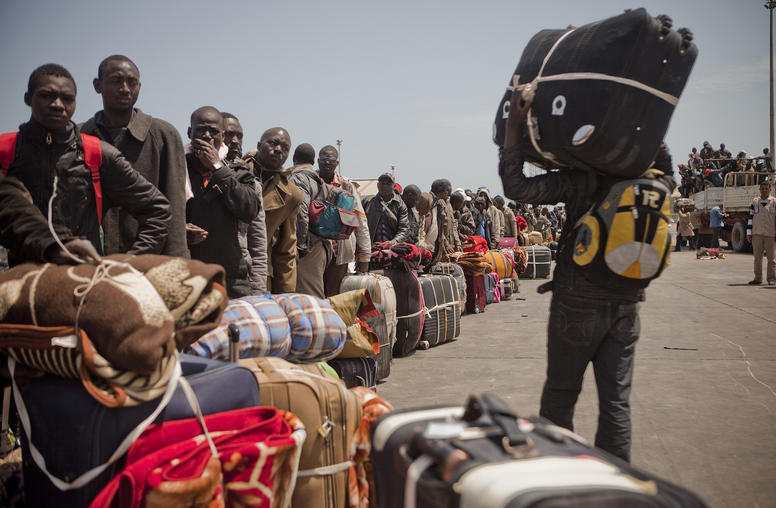
Libya’s Migrant Crisis Isn’t Just a European Problem
Next week, Italy will host an international conference intended to finally bring Libya’s bloody seven-year conflict toward resolution. Since the ouster of Muammar Qaddafi in 2011, successive U.S. administrations have watched Libya’s continuing collapse, believing that the country’s unraveling threatens only Europe. This is a mistake.